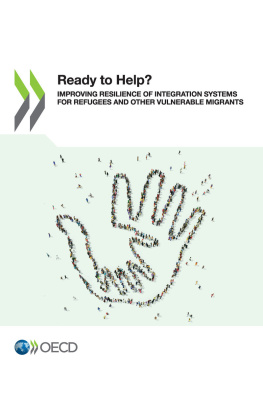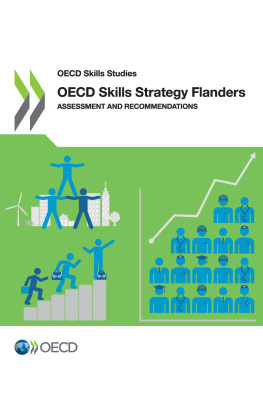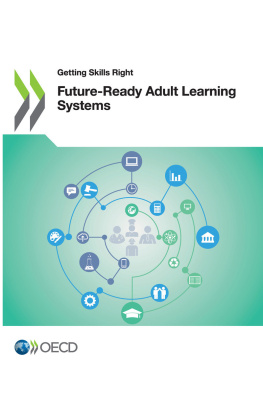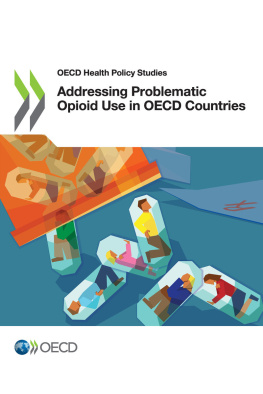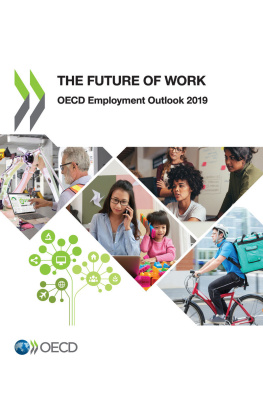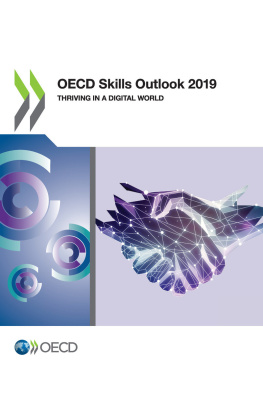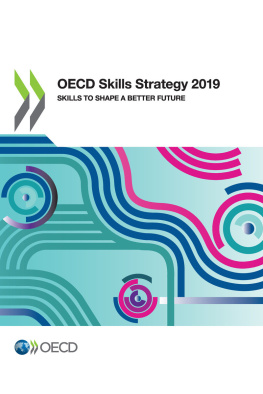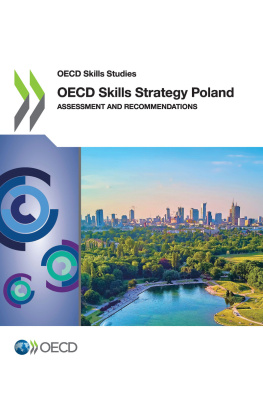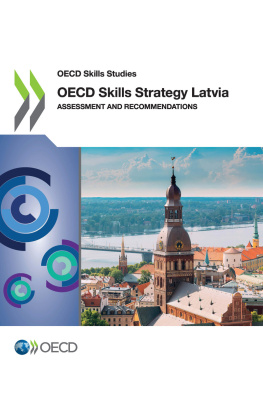OECD - Ready to Help?
Here you can read online OECD - Ready to Help? full text of the book (entire story) in english for free. Download pdf and epub, get meaning, cover and reviews about this ebook. year: 2019, publisher: OECD Publishing, genre: Politics. Description of the work, (preface) as well as reviews are available. Best literature library LitArk.com created for fans of good reading and offers a wide selection of genres:
Romance novel
Science fiction
Adventure
Detective
Science
History
Home and family
Prose
Art
Politics
Computer
Non-fiction
Religion
Business
Children
Humor
Choose a favorite category and find really read worthwhile books. Enjoy immersion in the world of imagination, feel the emotions of the characters or learn something new for yourself, make an fascinating discovery.
Ready to Help?: summary, description and annotation
We offer to read an annotation, description, summary or preface (depends on what the author of the book "Ready to Help?" wrote himself). If you haven't found the necessary information about the book — write in the comments, we will try to find it.
OECD: author's other books
Who wrote Ready to Help?? Find out the surname, the name of the author of the book and a list of all author's works by series.
Ready to Help? — read online for free the complete book (whole text) full work
Below is the text of the book, divided by pages. System saving the place of the last page read, allows you to conveniently read the book "Ready to Help?" online for free, without having to search again every time where you left off. Put a bookmark, and you can go to the page where you finished reading at any time.
Font size:
Interval:
Bookmark:
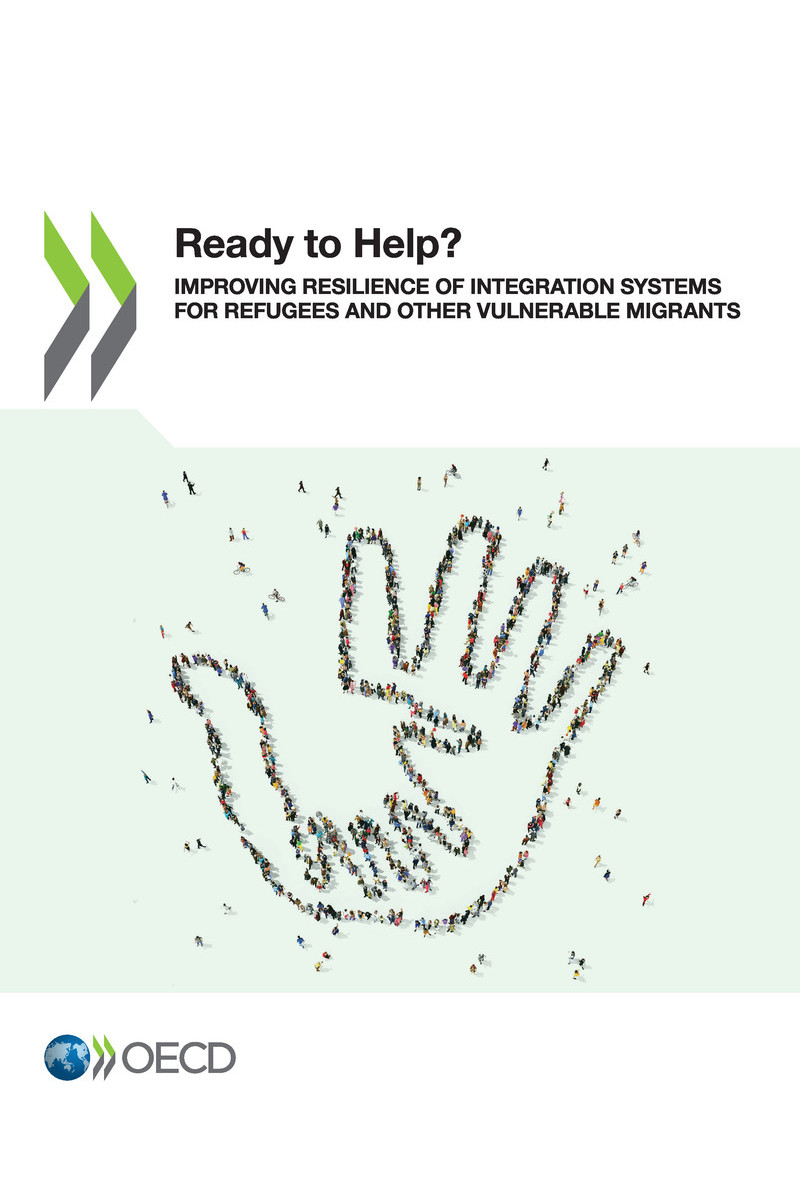
OECD (2019), Ready to Help?: Improving Resilience of Integration Systems for Refugees and other Vulnerable Migrants , OECD Publishing, Paris.
https://doi.org/10.1787/9789264311312-en
The integration of refugees and other vulnerable migrants in the host countries is essential to foster social cohesion and promote the economic benefits of migration. OECD countries were taken by surprise by the recent increase in inflows of humanitarian migrants. The refugee population in OECD countries tripled in just four years, between 2013 and 2017. But in addition to the recent upsurge in refugees, there have also been an increasing number of migrants admitted to OECD countries on other grounds; many of them face similar vulnerabilities and challenges in integrating in the host country. The humanitarian crisis raised many challenges to the host countries, but reception systems largely managed the strain of coping with sudden, large and unexpected inflows of people seeking protection. Record inflows, however, leave a legacy of increased demand for integration. Successful integration is as much a challenge as providing initial reception. Failure on this front would carry significant economic and social costs, constrain future policy-making and weaken trust in government.
The OECD has worked with member countries for decades to support effective management of migration and the integration of migrants, especially the most vulnerable, into the labour market and society of their host countries. To support OECD countries in improving integration policies, the Secretariat launched in 2017 a Horizontal Project on Ensuring Better Integration of Vulnerable Migrants. This report highlights the main elements of this work. In particular, the report is aimed at informing, sharing policy experiences and good practices, and helping governments promote the integration of refugees and other vulnerable migrants. Integration is not only about what happens in the OECD countries which have granted protection to these migrants; it also embraces support in developing transit and host countries as well as return and reintegration of migrants who do not have leave to remain and those who later choose to return when the situation improves in their home country.
Drawing on expertise and recent experience, the report addresses two main questions: How can we be better prepared and enhance international co-operation in the context of protracted refugee crises? How can we foster the integration and reintegration of refugees and other vulnerable migrants?
To answer these questions, this report brings together contributions from numerous OECD Directorates in 22 thematic chapters, each focused on a specific integration issue. The report identifies areas for improvement in the capacity of OECD member countries to co-ordinate and react faster and better.
A key lesson drawn in this report is that countries cannot act alone. Co-operation and sharing information and good practices is required at the international level. Domestically, governments need to work with a wide variety of stakeholders involved in the integration of migrants: civil society, the private sector, social partners, and government bodies at the sub-national level. Without a whole-of-society approach, it is difficult to achieve sustainable integration. The public should also be made aware of how governments intend to address integration challenges. A plan of action for integration should be in place, identifying partners and roles, and providing continuity.
Ready to Help: Improving Resilience of Integration Systems for Refugees and other Vulnerable Migrants was prepared as an integral part of the OECD Horizontal Project on Ensuring Better Integration of Vulnerable Migrants. The report was written under the overall supervision of the OECD Secretary General, Angel Gurra, and the OECD Chief of Staff and Sherpa, Gabriela Ramos.
The OECD Directorate for Employment, Labour and Social Affairs (ELS) led the writing and co-ordination of chapters of this report, under the senior leadership of Stefano Scarpetta (Director of ELS), Mark Pearson (Deputy Director of ELS) and Jean-Christophe Dumont (Head of the International Migration Division). Jonathan Chaloff and Gilles Spielvogel supervised the organisation of chapters and managed the project.
The report is based on contributions from different directorates: the Centre for Entrepreneurship, SMEs, Regions and Cities (CFE); the Development Centre (DEV); the Development Co-operation Directorate (DCD); the Directorate for Education and Skills (EDU); the Directorate for Employment, Labour and Social Affairs (ELS); the Economics Department (ECO); the Public Affairs and Communications Directorate (PAC); the Public Governance Directorate (GOV); and the Statistics and Data Directorate (SDD). OECD committees also reviewed and commented on an earlier draft version of this report.
The report would not have been possible without contributions from the following authors: Lisa Andersson Caroline Berchet, Francesca Borgonovi, Yves Breem, Lucie Cerna, Jonathan Chaloff, Claire Charbit, Eva Degler, Maria-Vincenza Desiderio, Emily Farchy, Kathleen Forichon, David Halabisky, Charlotte Levionnois, Thomas Liebig, Antonella Noya, Marco Mira DErcole, Anna Piccinni, Rachel Scott, Katherine Scrivens, Rhea Ravenna Sohst, Gilles Spielvogel, Ccile Thoreau, and Theodora Xenogiani.
Joanne Dundon, Veronique Gindrey, Liv Gudmundson, Phillipe Herve, Lucy Hulett, Kate Lancaster, and Anna Tarutina provided statistical, editing, logistical and publishing support. The report was edited by Randy Holden.
Font size:
Interval:
Bookmark:
Similar books «Ready to Help?»
Look at similar books to Ready to Help?. We have selected literature similar in name and meaning in the hope of providing readers with more options to find new, interesting, not yet read works.
Discussion, reviews of the book Ready to Help? and just readers' own opinions. Leave your comments, write what you think about the work, its meaning or the main characters. Specify what exactly you liked and what you didn't like, and why you think so.

